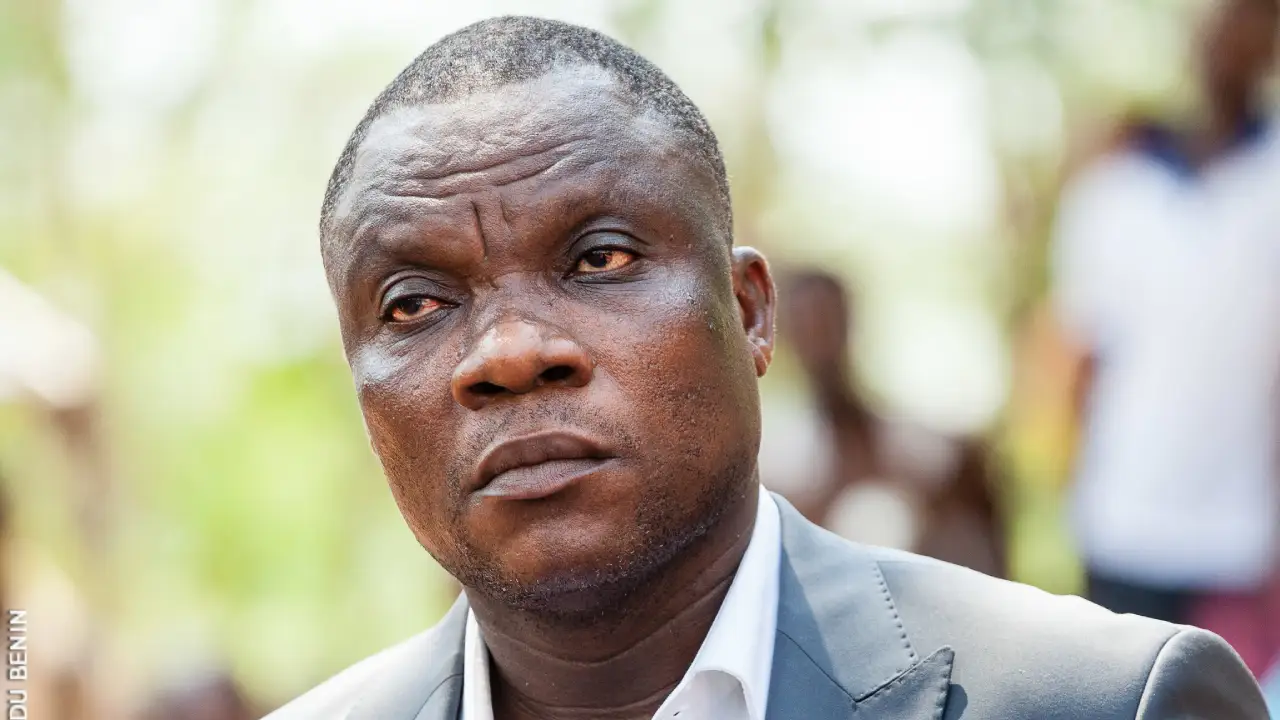“I want to be proven wrong on live TV”: Jacques Ayadji goes on the offensive
Appearing on Canal 3 Bénin’s flagship Sunday program, Jacques Ayadji, Minister-Counselor for Infrastructure and president of the Moele-Bénin party, delivered a candid, at times combative, and consistently strategic interview. Responding to criticism from the opposition—particularly from the party Les Démocrates—he reaffirmed the cohesion of the presidential majority and fiercely defended the current regime’s record. Without hesitation, he declared himself ready for a live debate, saying he wants “to be proven wrong in front of the Beninese people.”

SUMMARY
Over the course of sixty intense minutes, Ayadji reviewed the infrastructure projects launched since 2016, highlighting government progress in road construction, sanitation, and digital services. He acknowledged delays in certain areas, such as Tchaourou, but pledged close monitoring. His goal: full project delivery before 2026. “We’ve done the work. Now it’s time to make it known,” he insisted.
According to Ayadji, the visible transformation of the country’s major cities—and increasingly its rural areas—reflects the government’s effectiveness. From digitalization of public services to improved sanitation in Cotonou and newly paved roads, he claims Beninese citizens are experiencing real change.
“Our performance easily scores above 17 out of 20,” he said.
When questioned about the pretrial detention of Richard Boni Ouorou over alleged corruption, Ayadji declined to comment on an ongoing investigation, citing “republican discipline” and the need to respect the confidentiality of legal proceedings. Still, he defended the presumption of innocence and expressed admiration for Ouorou’s political activism prior to the controversy.
Opposition tactics: misinformation and a lack of alternatives
Ayadji delivered strong criticism against opposition leaders from Les Démocrates, including Nourénou Atchadé and Guèdègbé Moutairou, accusing them of “constant manipulation” and spreading controversy to conceal their lack of credible political alternatives. Regarding criticism over the new National Assembly building, Ayadji invited skeptics to visit the site themselves, reiterating his challenge: “I want to be proven wrong on television, in front of the Beninese people.”
He explained that lower completion rates were due to expanded construction plans. “If you’re asked to build a bedroom and a living room, and then two more rooms are added, your progress rate naturally changes.”
With major political maneuvers ahead, Ayadji remained vague about the presidential majority’s strategy. He emphasized that President Patrice Talon remains the “coach,” solely responsible for choosing the right time to name candidates. “Every camp has its strategy, and sometimes silence is one of them,” he noted.
Regarding a potential merger of allied parties ahead of the 2026 election, Ayadji dismissed the idea. He suggested instead the possibility of backing one or more candidate duos, depending on future assessments.
The Glo-Djigbé controversy
Criticized for the management of industrial zones and the treatment of soybean farmers, Ayadji pushed back forcefully. He defended protectionist policies as necessary to shield local industries from international dumping. “Economic patriotism means producing what we consume and consuming what we produce,” he declared.
As for reports of low wages in the Glo-Djigbé Industrial Zone (GDIZ), Ayadji clarified that these are not wages but stipends given to trainees sent for state-funded professional training. He accused the opposition of willfully distorting the facts and once again called for a public debate. “I won’t debate someone who doesn’t know what they’re talking about. I want a worthy opponent.”
A call for real political debate
Jacques Ayadji concluded with a bold challenge to his critics. He called for an end to one-sided political discourse and advocated for real, respectful face-offs to better inform the public. “It’s time the Beninese people had access to genuine political debates.”


Comments